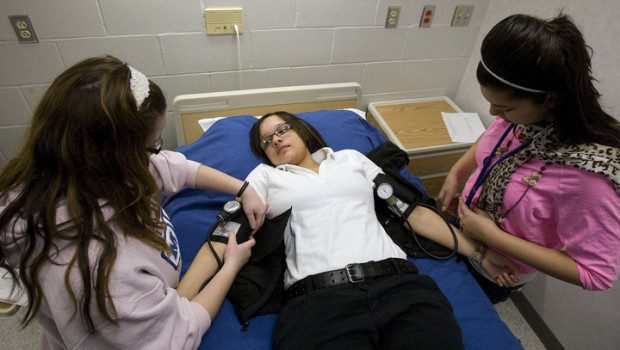High blood pressure is a leading cause of cardiovascular complications among college students. For many, the complications of high blood pressure are often misdiagnosed or under diagnosed. Suffering from anxiety, stress and improper diet, many college students often do not seek medical attention for the symptoms of high blood pressure until the complications are severe enough to debilitate their daily living activities.
In an effort to improve the high blood pressure of college students, college campuses are strongly urging students to engage in regular exercise, proper stress reduction techniques and consuming a healthy diet. When these measures do not prove effective, evaluation by a healthcare professional is usually indicated.
In the fight against high blood pressure in this young population, many healthcare professionals are turning to the use of Aceon, an ACE inhibitor. Manufactured and distributed by Solvay Pharmaceuticals, lends its success to control high blood pressure through the inhibition of the transformation of angiotensin I into angiotensin II.
As a college student suffering from high blood pressure, Aceon may provide the relief needed to restore blood pressure to a normal level while you focus on improving diet and exercise. With an aggressive approach, many college students can turnaround the negative effects of high blood pressure and remedy potential lifelong complications, ultimately discontinuing the use of Aceon.
As with any FDA approved drug, Aceon, in the treatment of high blood pressure, does not come without side effects. Most commonly, college students suffering from high blood pressure, using Aceon, will complain of symptoms such as lightheadedness, flu type symptoms, chest pain and, in some patients, a significant increase in weight gain. This last side effect, weight gain, is of significant concern as it is usually the weight gain, and improper diet that led to the onset of high blood pressure in the first place. For this reason, college students who begin the use of Aceon, to control high blood pressure, should consult a nutritionist on the college campus for advice on healthy eating.
For college students who are pregnant, suffering from high blood pressure, the use of Aceon is not indicated. As a category D drug, Aceon may cause birth defects in the fetus.
As if college life wasn’t hard enough, many college students, today, are suffering from increased incidences of high blood pressure. As a student with health complications, seeking the advice and guidance of a healthcare professional, including a nutritionist, is the first step in remedying the complications and, ultimately, restoring health. When suffering from high blood pressure, discuss the use of Aceon with your healthcare professional.




